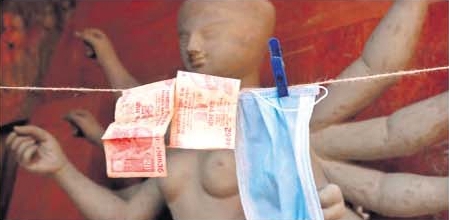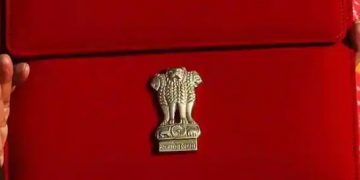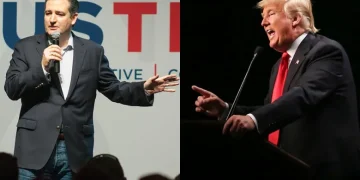Jayati Ghosh
Students in introductory macroeconomics courses typically used to learn about the paradox of thrift. This theory, popularized by John Maynard Keynes, states that if households decide to save more and consume less during a slowdown or recession (because of uncertainty about future income), then the resulting reduction in aggregate demand will aggravate the economic decline.
Given this counterproductive behaviour by both households and private firms, the correct policy response in a slump is to increase government spending. Unfortunately, Indian Prime Minister Narendra Modi’s government is doing the opposite during the current pandemic-induced downturn – with potentially disastrous consequences.
Modi’s fiscal rigidity is symptomatic of a broader long-term trend. In the mid-twentieth century, the Keynesian idea of boosting public spending to counteract a slump was mainstream and widely implemented. But, beginning in the 1980s, fiscal hawks started taking over both the economics discipline and most countries’ commanding heights of economic policymaking.
From that point on, “fiscal discipline” became the order of the day, and was enshrined in national laws and international treaties that sought to limit government deficits to some predefined proportion of national income, such as the European Union’s 3%-of-GDP ceiling. And the fashion in the developed world eventually became the norm for developing countries, too.
That was inevitable. The International Monetary Fund and representatives of global finance were relentless in pushing their obsession with fiscal consolidation and then austerity (absolute reductions in government spending), to the point that it became dogma for developing-country governments. The new orthodoxy reached its apotheosis in the extraordinary concept of “expansionary austerity,” whereby large reductions in government spending came to be associated with faster economic growth, because of their supposed positive impact on investor confidence.
This notion was extensively refuted both theoretically and empirically for advanced economies. But it continued to dominate macroeconomic policy, until the economic disruption caused by COVID-19 led OECD governments to toss zombie orthodoxy to the wind and borrow heavily from central banks to arrest the decline.
Such a reaction is unsurprising: the sheer stupidity of pursuing fiscal austerity during a pandemic-induced recession should be obvious. But even today, it is not apparent to some governments, particularly in the developing world.
In some cases, a country’s knee-jerk austerity reflex stems from its external-debt burden and other pressures on public finances that limit spending. But fiscal restrictions are often self-imposed, reflecting policymakers’ fear of how financial markets and global investors will react to the larger deficits that are assumed to result from increased public spending.
This denial of the paradox of thrift betrays a basic lack of understanding of macroeconomic processes. And Modi’s government is exhibit A, providing, providing an almost textbook example of how the paradox applies to public expenditure in a context of insufficient aggregate demand.
Even before the pandemic struck, the Indian economy had been slowing significantly for several years under Modi’s leadership. Falling employment and decelerating household consumption were clear evidence of weak aggregate demand.
This inevitably affected tax revenues in the fiscal year ending in March 2020. Indirect tax receipts were significantly below budget estimates, while a big corporate-tax cut midway through the year reduced revenue from direct taxes, even as private investment declined.
Modi’s government responded to the persistent revenue shortfall during the year by cutting essential public expenditure. Significant real expenditure cuts in health, education, and other social services and welfare resulted in the government spending Rs 878 billion ($11.6 billion) less than the original budget.
Not surprisingly, this effort to contain the fiscal deficit failed. The negative multiplier effects of lower government spending added to the recessionary tendencies in the economy, further reducing indirect tax receipts and widening the budget gap further. Moreover, GDP was also lower than anticipated because of the expenditure cuts. The net result was a full-year fiscal deficit of at least 4.6% of GDP, well above the government’s target of 3.4%.
India’s experience is further evidence – if any were needed – that attempting fiscal consolidation in a downturn by reducing public expenditure is likely to backfire and produce the opposite result, because the spending cuts intensify the recession. In India’s case, the rating agencies and investors whom the government was trying to placate have become even more critical.
Sadly, and despite scoring this own goal, Modi’s government is now repeating its mistake in the midst of the pandemic. It is stubbornly refusing to provide much-needed fiscal stimulus, relying instead on inflated claims that are unsupported by actual spending.
Worse, Modi’s administration is passing all responsibility for dealing with the pandemic and its consequences to India’s state (provincial) governments, but providing them with no additional resources to do this. And it has already declared that it will make wide-ranging expenditure cuts to compensate for the small amounts it has allocated to tackle the pandemic, so its fiscal-policy stance over the course of the year is likely to remain counterproductive.
Such an unnecessary and avoidable approach is a recipe for multiple health and economic disasters. Governments such as Modi’s remain “slaves to some defunct economist,” to borrow Keynes’s phrase, clinging to macroeconomic policies that will intensify economic ruin as surely as they always have.
The writer is Professor of Economics at Jawaharlal Nehru University in New Delhi, Executive Secretary of International Development Economics Associates, and a member of the Independent Commission for the Reform of International Corporate Taxation. ©Project Syndicate, 2020.






































